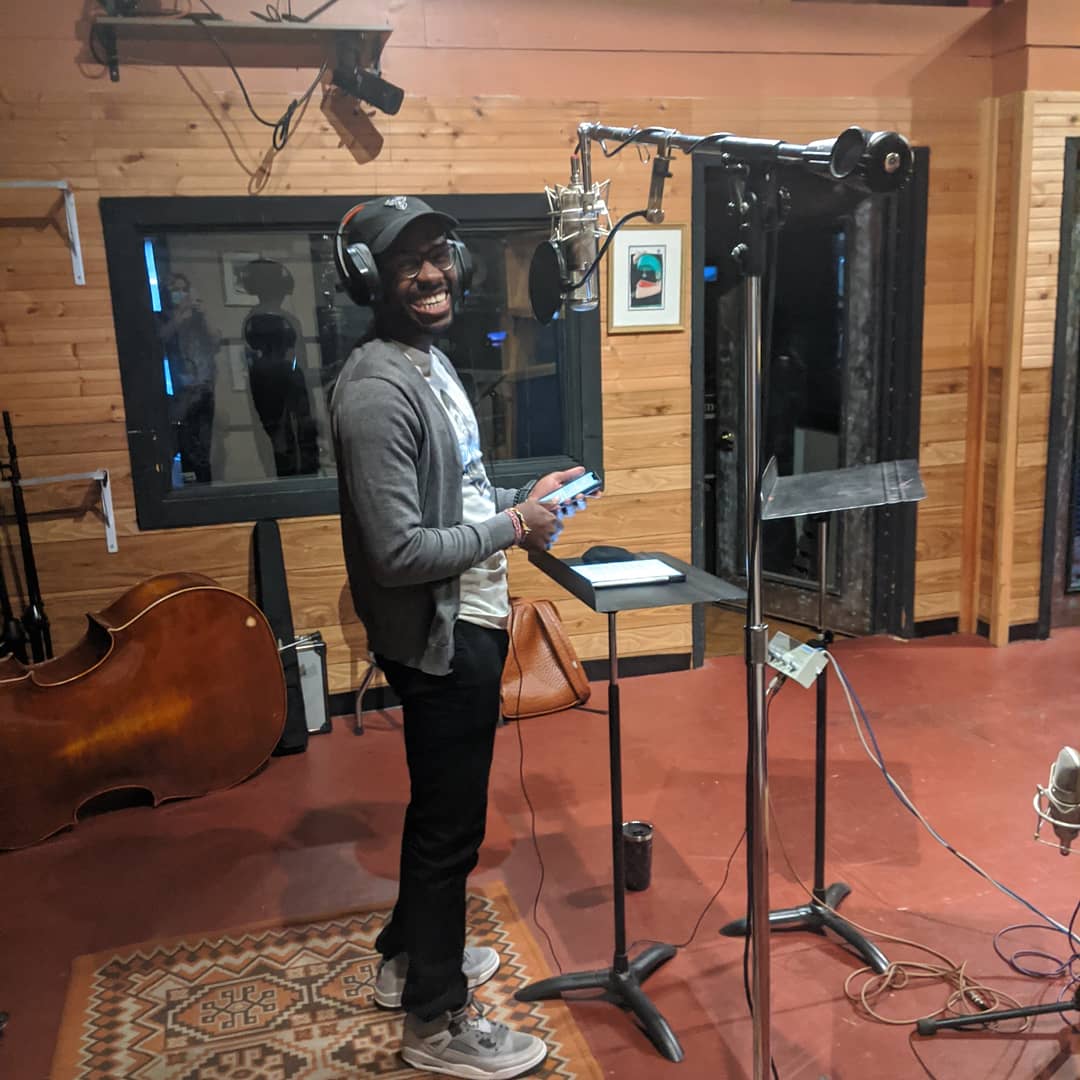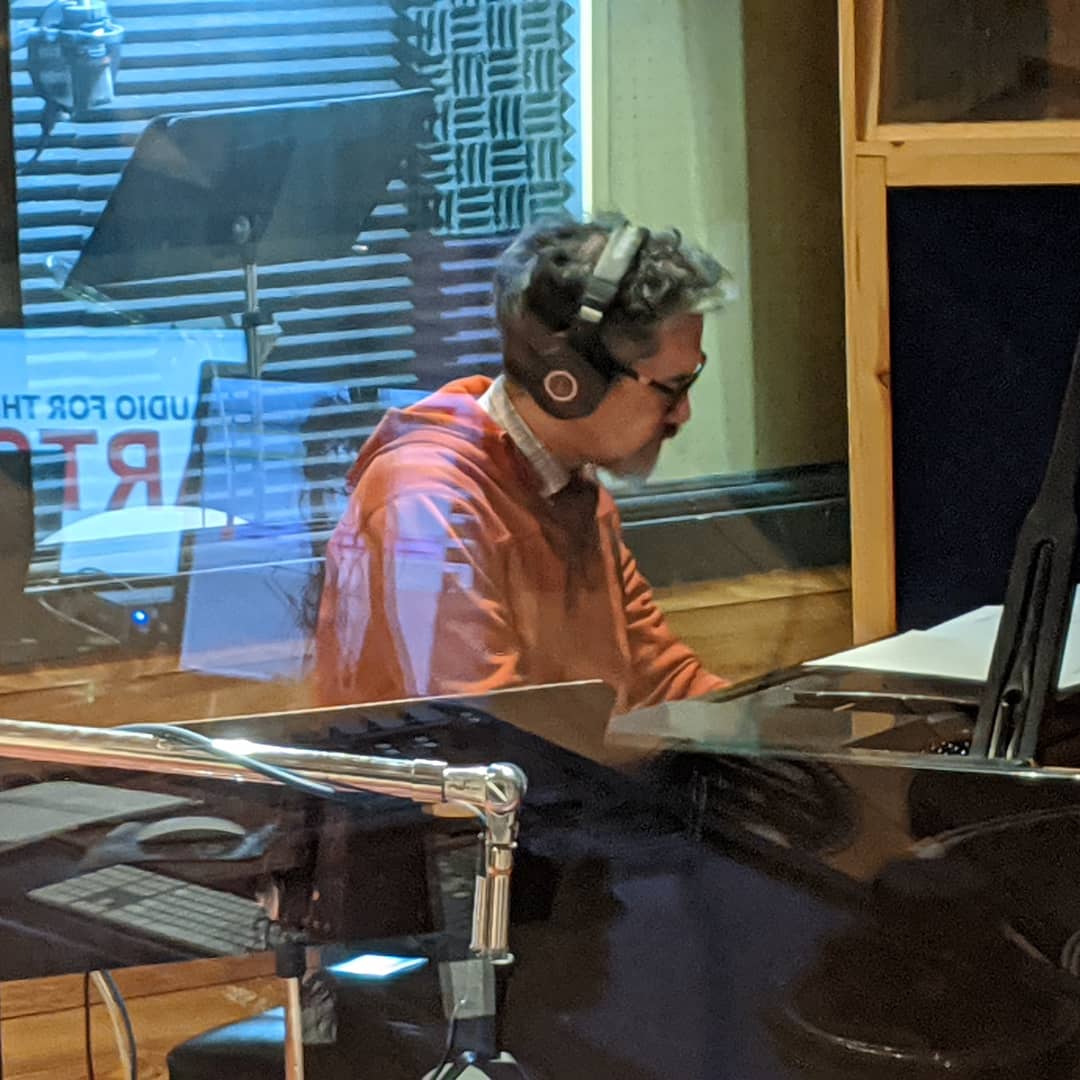
“This year, because theaters all over the country, all over the world have had to just really get creative. Of course there’s been a lot of Zoom theater and a lot of prerecorded live theater but that question: what is it, what can it be, and when we leave the confines of the theater space, is it still theater?” asked Meghan Randolph the Executive Director for Music Theatre of Madison. “And I absolutely think it is.”
As an answer to this question, starting next month, Music Theatre of Madison (MTM) will be releasing a new concept album entitled “An American Mythology.” The album features 10 composers, most of whom are people of color, from across Wisconsin. It was co-directed by Adam Qutaishat and Nathan Fosbinder.
The album is set for a staggered release starting May 14.
“An American Mythology” will not be performed on stage nor be accompanied by any formal physical production but, as noted by Anthony Cao, a featured musician on the album, “theater is telling stories.”
”[When] I was writing the song in the beginning, I was trying to think of how we could show it on stage, and I was like, I have to completely not even think about that, because it limits the way that I’m writing,” said Alexis Dean, who performs as L.E.X., a rapper on “An American Mythology.”

“This concept album is just music but it does give the audience member, whoever that may be, the opportunity to paint the picture of what it’s like for them,” said Camille Hunt, another of the album’s composers. “And the goal becomes to create this space for your audience and audience members to connect with them and bring them to where you are, so whatever it is you’re imagining that piece to be.”
The album’s overarching theme (and subsequently its title) is based on MTM’s notion that, as described on the website, that “Americans have a contemporary mythology, with stories centering on real or imagined individuals in our society who are deemed to exemplify success and failure, beauty and ugliness, right and wrong.”
Myths are specific stories with characters and plots, but often, they contain universal axioms that when broadly applied, can ring true for all. This was the thought shared by Cao regarding his own piece which tackles his own identity as a mixed-race individual.
“The lens is specific, very particular to me, my own identity as an Asian and white kid growing up in a small town. But the overall message of the song is much more universal,” Cao said. “It’s just about the struggle of a young person to discover who they are.
“I think it’s important to a Madison-based theater audience that historically has been predominantly white, to hear stories that are maybe different from their own to open their eyes and to help them understand,” Cao continued. “I also think it’s important for for BIPOC folks to hear stories that resonate with them and that they can more easily identify with….I think at the end of the day, some of these stories, while some of the details are really specific or particular, larger messages are can be really universal connected to anybody, no matter what your background is.”
This year marks Music Theatre of Madison’s 15th anniversary and as such, Randolph said, the theater was interested in producing “all new works,” particularly new pieces which amplify BIPOC voices.
“We love and respect the older musicals and the big blockbusters, but there’s also room for new pieces and new voices,” Randolph said. “I’ve always thought theater has something for everybody, even people who say they hate it, but there’s so many barriers that have been created. It was time to focus 100 percent on eliminating those barriers so that people can come.”

Further, Hunt noted, theater can also be a place where the voiceless or the unheard can lay their grievances.
“If you look at the history of theater, it was hard for society to bring up issues that were going on in their society to their government or to their officials without bumping heads or there being this huge conflict,” Hunt said. “So a lot of times they will use art or theater to get points across. And the creative people or the artists or the some of the ones that help pave the way to open up the eyes of the leaders and the powers that be in society.”
Both Dean and Cao, who are educators here in Madison, expressed this project as something that can show youth that anyone can make a song and anyone can be involved in theater.
“I really want a lot of people to hear it and have a lot of Black kids hear it and see that, ‘oh, I can actually bring hip hop to a big stage at the Overture or have it on Broadway.’ We can actually have a hip hop song there and we can rap it and perform it,’” Dean said.
“I really want to give Black kids more access and more reasons to go to spaces where we don’t typically feel invited or feel comfortable in,” he continued.
More information about “An American Mythology” as well as future updates regarding pricing and the composer lineup can be found here, on the Music Theatre of Madison website.



